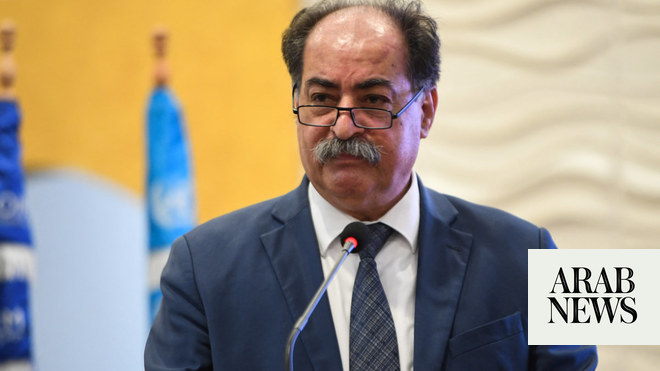
Libyas UN-backed Prime Minister Fayez Al-Sarraj on Thursday carried out a ministerial reshuffle as he relieved Interior Minister Al-Aref al-Khoja from his duties and replaced him with Abdussalam Ashour.
Meanwhile, a senior Libyan lawmaker said the UN missions plan to hold elections in Libya before the end of the year was at risk.
In this context, President of the Tobruk-based House of Representatives’ National Defense and Security Committee Talal Abdullah al-Mayhoub told Asharq Al-Awsat that the parliamentary and presidential elections planned by the UN mission "may not take place this year."
He considered the ruling of the Supreme Constitutional Court in the capital Tripoli, which blocked legal challenges from lower courts to a draft constitution on Wednesday, paving the way for a possible referendum on the document and a move toward elections, as “politicized, defective, and totally unconstitutional.”
Members of a Constitutional Drafting Assembly (CDA) had voted last summer in favor of a draft constitution, but an administrative court in the eastern city of Bayda had ruled that the vote was invalid.
The supreme court effectively quashed the Bayda decision by declaring that administrative courts do not have the jurisdiction to rule on matters relating to the CDA.
The draft constitution could still face hurdles, including challenges in the supreme court, turnout or approval requirements set by the eastern parliament or House of Representatives (HOR) for a constitutional referendum, and the difficulty of holding a nationwide poll in a country where there are no national security forces.
For his part, UN Envoy Ghassan Salame considers establishing a constitutional framework a key step in efforts to stabilize Libya after years of anarchy following a 2011 uprising.
The United Nations and its envoy insist on holding the elections with the explicit support of the UN Security Council by the end of September this year.
Several Western countries have also expressed an urgent need to carry out elections in the country and provided financial support for the upcoming electoral process; however, without a clear map.
Regarding the obstacles facing the success of the elections, Federica Saini Fasanotti of the Washington-based Brookings Institute think-tank told AFP, “when there are 20 million weapons in the hands of six million Libyans, how can the election be successful?"
"Elections are the peak of democracy and not the beginning," she said












